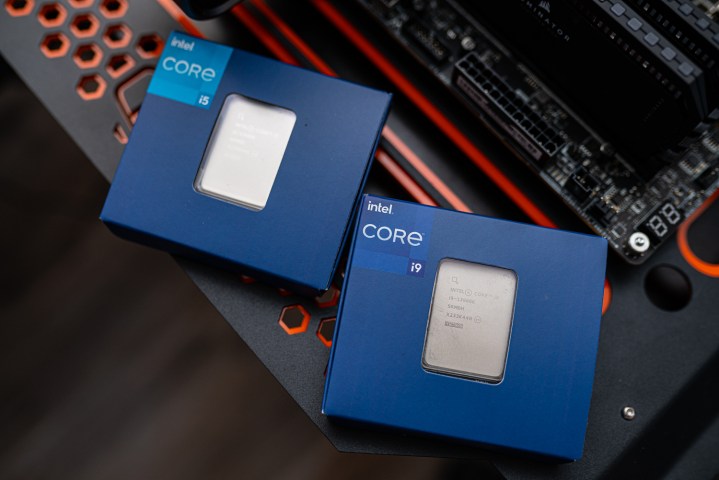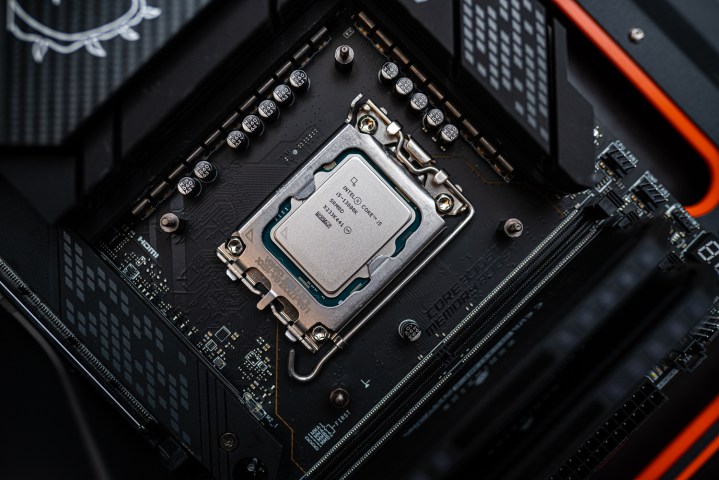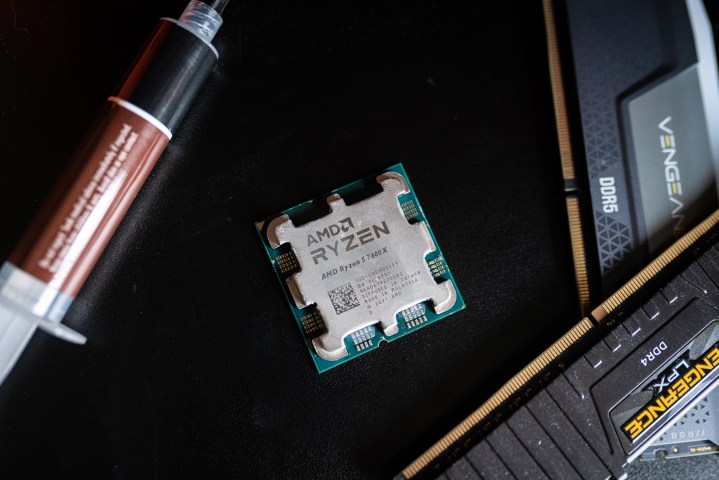Video editing is one of the most intensive tasks you can ask of your CPU — even one of the best ones. It’s also one of those tasks that a CPU can really dig into, utilizing as many cores as it has on hand, and as high a clock speed as it can handle. Video editing, even more than gaming, really shows what a processor can do.
So, if you want to accelerate your video editing tasks and transcoding efforts, using one of the best CPUs for video editing can make a real difference. Here are our favorites.

AMD Ryzen 9 7950X
Best CPU for video editing
- Off the charts CPU performance
- Solid gaming improvements
- Integrated graphics work for light games
- Works with most AM4 coolers
- DDR5 could bloat cost
AMD’s productivity peak in 2024 is the Zen 4-based Ryzen 9 7950X. With 16 cores and support for up to 32 simultaneous threads and a high clock speed, it’s the absolute fastest multithreaded processor AMD has made for mainstream professionals. Sure, its Threadripper range might win out, but it’s very, very expensive, and the 7950X3D is better for gaming, but it can’t hold a candle to the 7950X in productivity.
For hobbyists and professionals looking for excellent performance without paying enterprise rates, the Ryzen 7950X is the pinnacle of video editing power. While there are CPUs with more cores, like the Intel Core i9-13900K and 14900K, most editing suites can’t make use of that many cores and threads, so they just can’t compete with the raw power of AMD’s 16 full-power Zen 4 cores.


Intel Core i9-13900K
Best Intel CPU for video editing
- Cheaper than AMD competition
- Support for 600-series motherboards and DDR4
- Solid multi-core improvements
- Surprising gen-on-gen improvements
- High power demands
- Small gaming performance gains
Intel’s two most powerful processors to date are the 13900K and its 14th-generation replacement, the 14900K — save the special edition 14900KS. But while the newer generation version might sound faster on paper, there’s not much in it in the real world. They both have 24 cores and support up to 32 threads, but with only a couple of hundred megahertz clock speed difference between them — and that’s only if you can cool the new chip well enough — then it doesn’t make much difference in real-world editing performance.
With close to $100 difference in price, too, the 13900K easily wins out for being the better bang-for- buck option, while still offering peak Intel performance in video editing. With that many cores operating at close to 5GHz, you get an incredible level of multithreaded performance that rivals AMD’s best in video editing, and outperforms it in many other productivity tasks, too.
One advantage of the 13th-generation Intel CPUs, too, is their support for DDR4 memory. That can make your upgrade to this new video editing CPU a little cheaper, even if you’d be sacrificing some performance by not opting for DDR5 and a compatible motherboard.


AMD Ryzen Threadripper 7970X
Best high-end CPU for video editing
- Incredible multithreaded performance
- Far more affordable than higher-end Threadrippers
- Has the right number of cores to accelerate video editing
- Lots of upgrade potential
- Much more expensive than mainstream CPUs
- Expensive motherboard and memory
If you are willing to spend to get it, AMD’s Threadripper CPUs offer even greater performance for faster video editing than anything the consumer space has to offer. With 32 high-power Zen 4 cores and support for up to 64 simultaneous threads, there isn’t a Ryzen CPU or Intel 13th/14th-gen option that can even come close in this kind of multithreading power.
It’s not the top Threadripper CPU, though. The 7980X and 7995WX offer 64 and 96 cores, respectively, but those are more for simulation work, 3D rendering, AI calculations, and other heavy tasks that go beyond the needs and demands of video editing. They also cost double, and four times the price of the 7970X, respectively, so increase costs beyond even this dramatic level to absurd pricing.
Still, if you can make more money by finishing your video editing faster, it’s worth paying a high price tag for something incredible, and that’s what the Threadripper 7970X is. It’s the fastest video editing CPU you can buy — but you will have to pay a lot for it.


Intel Core i5-13600K
Best midrange CPU for video editing
- Excellent performance in video editing and elsewhere
- Affordably priced
- Efficient compared to top Intel CPUs
- Supports DDR4 memory
- Lacks performance of top CPUs
- Limited upgrade path
The Intel 13600K has the dubious honor of offering better bang for buck and almost identical performance to that of its successor, the 14600K. While the newer CPU does perform a little better in the real world, there’s so little in it that for video editing at least, you’re better off getting the 13600K. It has six performance cores and eight efficiency cores, helping it punch well above its weight in multithreaded workloads like video editing. It’s also stellar for gaming, no matter what resolution and settings you play at.
With its 125W TDP it’s far more power efficient than the top Intel CPUs, too, helping to save on power costs and high temperatures (and noise levels), and it has support for DDR4 memory, which can help it become part of a more affordable video editing rig. Its upgrade path is limited to other Intel 13th- and 14th-generation CPUs, but the higher-end options are faster in video editing, so it’s not a negligible one.
If you’re looking to build a mid-range video editing PC, the 13600K is the tool for the job.


AMD Ryzen 5 7600X
Best budget CPU for video editing
- Strong video editing performance
- Very affordably priced
- Strong upgrade potential
- Very energy efficient
- Lacks performance of top chips
- Only supports DDR5
AMD’s Ryzen 7000 generation hasn’t proved as popular as the 5000-series that preceded it, but with such great upgrade potential, it’s hard to recommend older CPUs for video editing. The 7600X has six cores and supports up to 12 simultaneous threads, giving it decent video editing performance. At around $200, you aren’t going to find many CPUs that can compete.
It is locked to DDR5 memory, so you’ll need to pay a bit more up front with this one, but you can upgrade it in the future to any other Ryzen 7000 generation CPUs, as well as any future AM5 releases. AMD is likely to offer straight CPU-swap upgrades for the Ryzen 8000 and Ryzen 9000 generation, as long as your motherboard supports it, so you’ll be able to boost your CPU performance for much less in the years to come.
This is the most energy-efficient CPU in our lineup, too, so if you want to build a compact, energy efficient, or quiet video editing machine, the 7600X is a great choice.

Editors’ Recommendations
Services Marketplace – Listings, Bookings & Reviews
